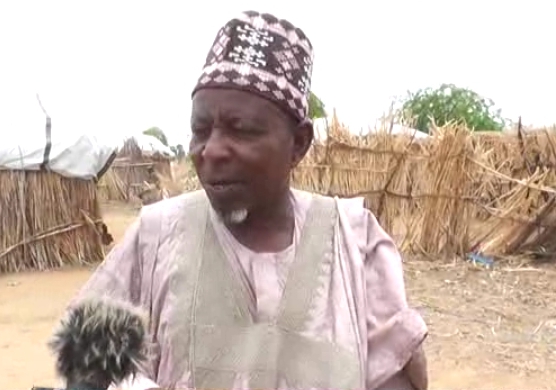By Lizzy Carr, Bauchi
Thousands of internally displaced persons (IDPs) who escaped from insurgency in Marte and Jere in Borno and Yobe states, have now got means of livelihoods in host communities of Bauchi state.
Many of the IDPs were settled on a piece of land provided by the wife of the former president, Mrs Maryam Abacha some 15 kilometers away from Bauchi town.
The IDPs from Marte and Jere who are mainly farmers and herders, were displaced from their communities four years ago by insurgents.
The insurgents also killed many and burnt their properties, so they survived with their lives only.
The IDPs started from scratch, this was because the land they secured had no structures, source of potable water, health facility and good access roads.
These IDPs numbering over 200 are mainly women and children who had lost their family members.
The process of assisting them at first was difficult due to lack of proper registration by the state and federal governments.
Speaking to our correspondent, the leader of the IDPs in Rundebin, Mr Bulama Gujja said that the people have begun to have means of livelihood through various interventions.
According to him, in 2022 the Federal Ministry for Humanitarian empowered IDPs with livestock, skills equipment and food items.
“The ministry of humanitarian affairs and disaster management gave us 1,200 chicks, 10 per woman to rear and 90 goats, two motorcycles and sewing machines.
“They are into small business; after rearing they come together and sell their animals and purchase cattle.
“For the women they sell out their chickens and replaced them with the local ones for easy rearing,” he said.
Gojja said that some of the women were into cap making which is earning them income.
Speaking on healthcare, Gujja said that women and children were transported on motorcycle to access care.
“Some of our women had miscarriage and stillbirth before they reach nearby health facility because vehicles find it difficult to reach the place due to bad roads.
“Our children’s corpses are taken on motorcycles be buried”.
He pleaded to the state government to assist the IDPs with farming inputs.
“Farming season is here again and accessing seeds, fertilizer and pesticides is hard; so we plead to the state government to come to our aid,” he said.
In another development, the IDPs called on the Independent National Electoral Commission (INEC) to deploy its staff for continued voter registrations.
The IDPs have about 200 eligible voters and have no access to the internet.
He mentioned that transporting themselves to INEC offices for registration was also a constraint.
“The only way we can pay back the government is for us to have voters card”.
Speaking to an IDP, Mr Mohammed Mustapha narrates his ordeals on seeking livelihood.
“At first, it was not easy for my family as we depend on donations. As a young man, I decided to go to town and look for something doing. I sold vegetables but that didn’t help so a woman gave me a motorcycle to use for transportation business. Today, I have paid her the money and the bike is mine now”.
Mustapha has left the camp and is now staying at a nearby community where it is easier to access the metropolis.
Acting Director State Emergency Management Agency (SEMA), Mr Bala Lame said the state has continued to support IDPs with food and other items.
“We have installed solar lighting, and a temporary school for little children who cannot access the nearby school.
The IDPs provided teachers among those who teach the children, but today their tent has been blown off”.
“Though it is an unofficial Camp the state treats every IDP the same,” he said.
This story was supported by Journalists for Christ through World Association of Christian Communication (WACC) and Bread for the World German Protestant Agency for Diaconia and Development.


